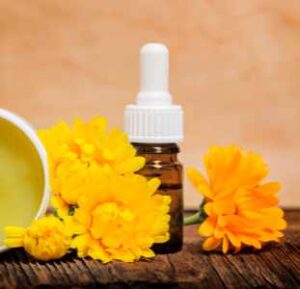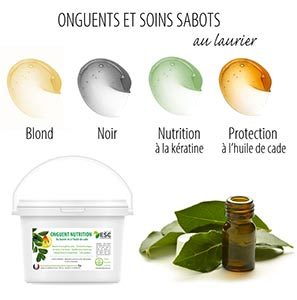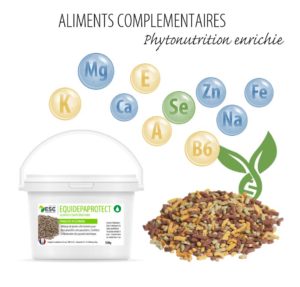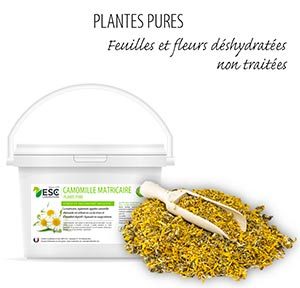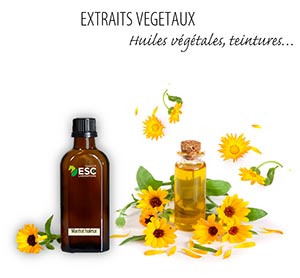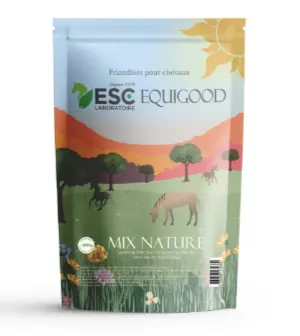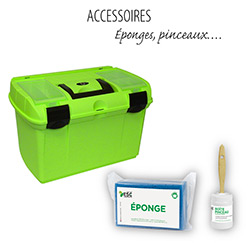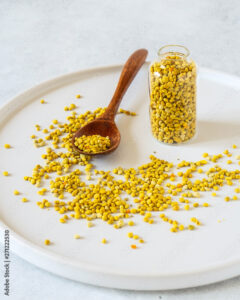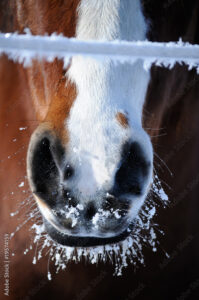It tends to make us cry or scratch our throat... but pollen is much more than an allergen warning the arrival of spring. It is also and above all a concentrate of nutrients particularly valuable for our health as well as that of horses.
Ideal to boost your horse's immune defenses, give it a renewed vitality and facilitate its recovery after a disease, pollen is an excellent natural ally to be introduced into your animal's diet.
We present you its main benefits as well as our advice to make your horses enjoy them.
What is bee pollen?
We all know about it. The origin and usefulness of pollen. But let's make a little reminder.
It consists of small seeds or seeds, iI is harvested by bees from stamens (i.e. male reproductive organs of a flower). They then bring them back to their hives to feed them.
But when bees fly with pollen in their baskets, seeds can escape and land on female reproductive organs (pistill) of another flower. This is called the pollination phenomenon, whose nature (and we at the same time) are extremely dependent.
In pollen, not all are equal. We must distinguish between the so-called "anemophile" pollen (which is carried by the winds), which is also the most allergenic pollen, and the entomophile pollen (female by the insects), which interests us here.
For the little story, pollen brought back by bees into their hives is then mixed with yeasts and lactic ferments from the plant nectar.
The latter is returned to us thanks to the beekeepers, who harvest it directly in hives. It is known mainly in its dried form (small golden seeds). But its fresh version has become very popular in recent years.
Raised to the rank of superfood – due to its rich nutrients and antioxidants, pollen now reaches our plates, and even in the feeder of our horses.
What is the composition of pollen for horses?
Bee pollen provides a wide range of nutrients essential to hair health. It's like this. composition :
- All vitamins of complex B as well as vitamin C;
- But also vitamins D, E, K and beta-carotene (vitamin A);
- Many minerals (including calcium and phosphorus in an almost perfect 1:1 ratio);
- Enzymes and coenzymes, vegetable fatty acids, carbohydrates and vegetable proteins.
- Plus 22 amino acids – including the eight "essential" amino acids that the organism cannot synthesize itself.
Why supplement your horse with pollen?
If less known than honey or royal jelly, pollen is very rich in nutrients and thus endowed with many virtues. This true vitamin cocktail is particularly appreciated for its strong and revitalizing effects on the horse's body.
Amonghe many benefits it may have as a cure for food supplementsIn particular, it should be mentioned that:
- Stimulating. Because it is rich in vitamins B, C and E, minerals and trace elements, but also in iron, pollen is an excellent natural stimulant for restore peps to your horse. Its vegetable protein content also makes it a good ally for your animal's muscle tone.
- Digestive: pollen is about 12% fibre. But its manufacturing process also makes it very interesting to regulate intestinal function. Bees add their saliva to form small pelotas, which will be more easily transportable. But this saliva is loaded with enzymes and enriches pollen with probiotics.
- Antioxidant. Rich in beta-carotenes and polyphenols, bee pollen is therefore very interesting to fight the action of free radicals. Supplementing your horse with pollen is also a very good way to strengthen its immune defenses, especially before the arrival of winter.
Pollen also allows strengthen your horse's cardiovascular system. Rutosides are found in its composition, which have the peculiarity of supporting the capillaries and blood vessels.
It's also a good ally for soothing skin disorders your horse may suffer (like the summer dermit). Its amino acid and vitamin content will protect the epidermis and facilitate the regeneration of its cells.
Can we give pollen to a horse allergic to pollen?
Finally, pollen is an excellent means of fight allergy... with pollen. In the form of a preventive cure, especially before spring, consuming some pollen can help you desensitize your horse gently.
However, be careful to proceed step by step (starting with small doses), for check that your animal does not react and tolerates the supplement well. It is also advisable to consult your veterinarian before starting a cure in case of previous allergy or pregnant mare.
How to benefit from pollen benefits for horses?
To restore all the natural properties of pollen for horses, our laboratory offers a supplement specifically designed for their needs. Made of 100% bee pollen, it is controlled and conditioned in France, to offer you the best quality and maximum transparency.
We advise you toadd our pollen for horses (adult) dat 50 grams a day for 3 weeks. A cure just before winter will be ideal to boost your immune defenses, but it can also be recommended during recovery.
Do not hesitate to ask your veterinarian for advice before use or extension (for example, in case of chronic disease).


